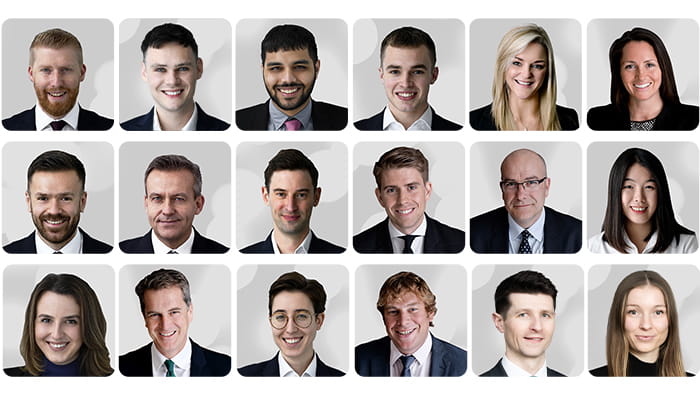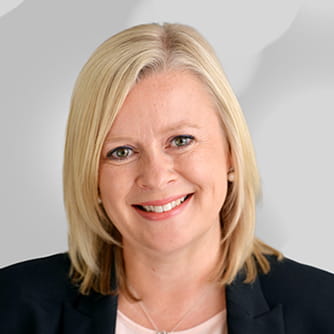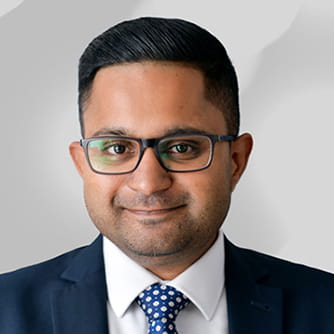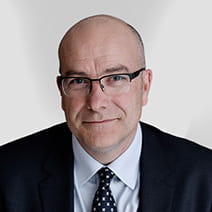The Liontrust Sustainable Investment team manages a broad range of funds across equities, bonds, and managed funds.
Why the Liontrust Sustainable Investment team
- Experienced team: The Sustainable Investment team has more than 200 years of combined experience. Peter Michaelis, Head of the team, has been managing sustainable global growth strategies since 2001. View the team page here.
- Pioneers: Key members of the team were among the pioneers of sustainable investing, being founder members of the PRI (Principles for Responsible Investment) while at Aviva and leading on issues that are now central to mainstream investing such as not owning companies exposed to diesel engines, coal and oil (in 2001) and moving to exclude natural gas (from 2016).
- Distinct, rigorous and repeatable process: The process seeks to generate strong returns from investing in companies aiming to deliver profits through positive social and environmental impacts. The managers look at the world through the prism of three mega trends – Better resource efficiency (cleaner), Improved health (healthier) and Greater safety and resilience (safer) – and then 22 themes within these.
- Selecting stocks: The managers identify well-run companies whose products and operations benefit from these transformative changes and which are helping to make the world cleaner, healthier and safer. Further analysis hones this list down to those companies that exhibit superior sustainability management, will deliver persistently high returns on equity and are attractively valued on a five-year view.
- Integrating ESG: Each manager is an analyst and is responsible for conducting research on a given sustainability theme and the sustainability analysis of potential investments. As each manager is also responsible for the business fundamentals and valuation analysis, we believe it derives an information advantage that would be lost if these roles were separate.
- Time arbitrage: By having a longer time horizon than most, the managers can patiently invest in businesses they believe have years of growth ahead, and take advantage of dislocations in the market when these businesses are trading considerably below what the managers believe they are worth.
- Engagement: This is an integral part of how the managers invest. Engaging on key ESG issues gives the managers greater insight, helps to identify leading companies and is used as a lever to encourage better business practices.
- Impact: The managers show how their funds’ themes and investments are contributing to the UN’s SDGs (Sustainable Development Goals). The managers have for many years published all holdings for them.
- Mitigating CO2 exposure: Investments in the SF Managed Fund emit 77.0% less carbon (tCO2e) than the market it invests in as at 31 December 2022. This independent analysis includes direct emissions forming scope 1 and scope 2 emissions only. (Source: MSCI Carbon Analytics/Liontrust).
- Advisory committee: The managers consult an external Advisory Committee, which comprises five experts in sustainability. The Committee’s role is to continually assess and challenge the team and offer guidance on evolving issues within sustainability.
Our investment process
The investment process seeks to generate strong returns from investing in companies aiming to deliver profits through positive social and environmental impacts. The fund managers look at the world through the prism of three mega trends – Better resource efficiency (cleaner), Improved health (healthier) and Greater safety and resilience (safer) – and then 22 themes within these.
If a company has significant exposure to one of the themes, the fund managers verify how sustainable the rest of its activities are. For each company, the fund managers determine the ESG factors that are important indicators of future success and assess how well these are managed, via the proprietary Liontrust Sustainability Matrix.
Companies in which the fund managers invest will have robust business fundamentals with a proven ability to deliver high returns of equity (RoE) through sustaining margins and asset turnover. Typically, these companies have a maintainable competitive advantage through scale, technology or business model.
Sustainable Investment team
The team has been managing the Sustainable Future funds for more than 22 years. The team is headed by Peter Michaelis who has been managing the funds since launch. The fund managers all joined from Alliance Trust Investments (ATI) as part of its acquisition and were previously running the Sustainable Future fund range at Aviva Investors.

Funds managed by the team
Funds managed by the team
Key Fund Literature
Contact us
International Sales

Head of International Client Service
Contact us

Head of UK Client Service

UK Client Service – London

UK Client Service – Midlands and the North
How to invest in Liontrust funds
Key Risks
Past performance is not a guide to future performance. The value of an investment and the income generated from it can fall as well as rise and is not guaranteed. You may get back less than you originally invested. The issue of units/shares in Liontrust Funds may be subject to an initial charge, which will have an impact on the realisable value of the investment, particularly in the short term. Investments should always be considered as long term.
Investment in Funds managed by the Sustainable Future team involves foreign currencies and may be subject to fluctuations in value due to movements in exchange rates. The value of fixed income securities will fall if the issuer is unable to repay its debt or has its credit rating reduced. Generally, the higher the perceived credit risk of the issuer, the higher the rate of interest. Some Funds may invest in derivatives. The use of derivatives may create leverage or gearing. A relatively small movement in the value of a derivative's underlying investment may have a larger impact, positive or negative, on the value of a fund than if the underlying investment was held instead.
Disclaimer
This is a marketing communication. Before making an investment, you should read the relevant Prospectus and the Key Investor Information Document (KIID), which provide full product details including investment charges and risks. These documents can be obtained, free of charge, from www.liontrust.co.uk or direct from Liontrust. Always research your own investments. If you are not a professional investor please consult a regulated financial adviser regarding the suitability of such an investment for you and your personal circumstances.
This should not be construed as advice for investment in any product or security mentioned, an offer to buy or sell units/shares of Funds mentioned, or a solicitation to purchase securities in any company or investment product. Examples of stocks are provided for general information only to demonstrate our investment philosophy. The investment being promoted is for units in a fund, not directly in the underlying assets. It contains information and analysis that is believed to be accurate at the time of publication, but is subject to change without notice. Whilst care has been taken in compiling the content of this document, no representation or warranty, express or implied, is made by Liontrust as to its accuracy or completeness, including for external sources (which may have been used) which have not been verified. It should not be copied, forwarded, reproduced, divulged or otherwise distributed in any form whether by way of fax, email, oral or otherwise, in whole or in part without the express and prior written consent of Liontrust.



























